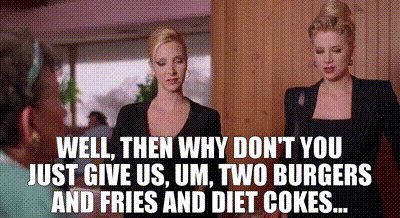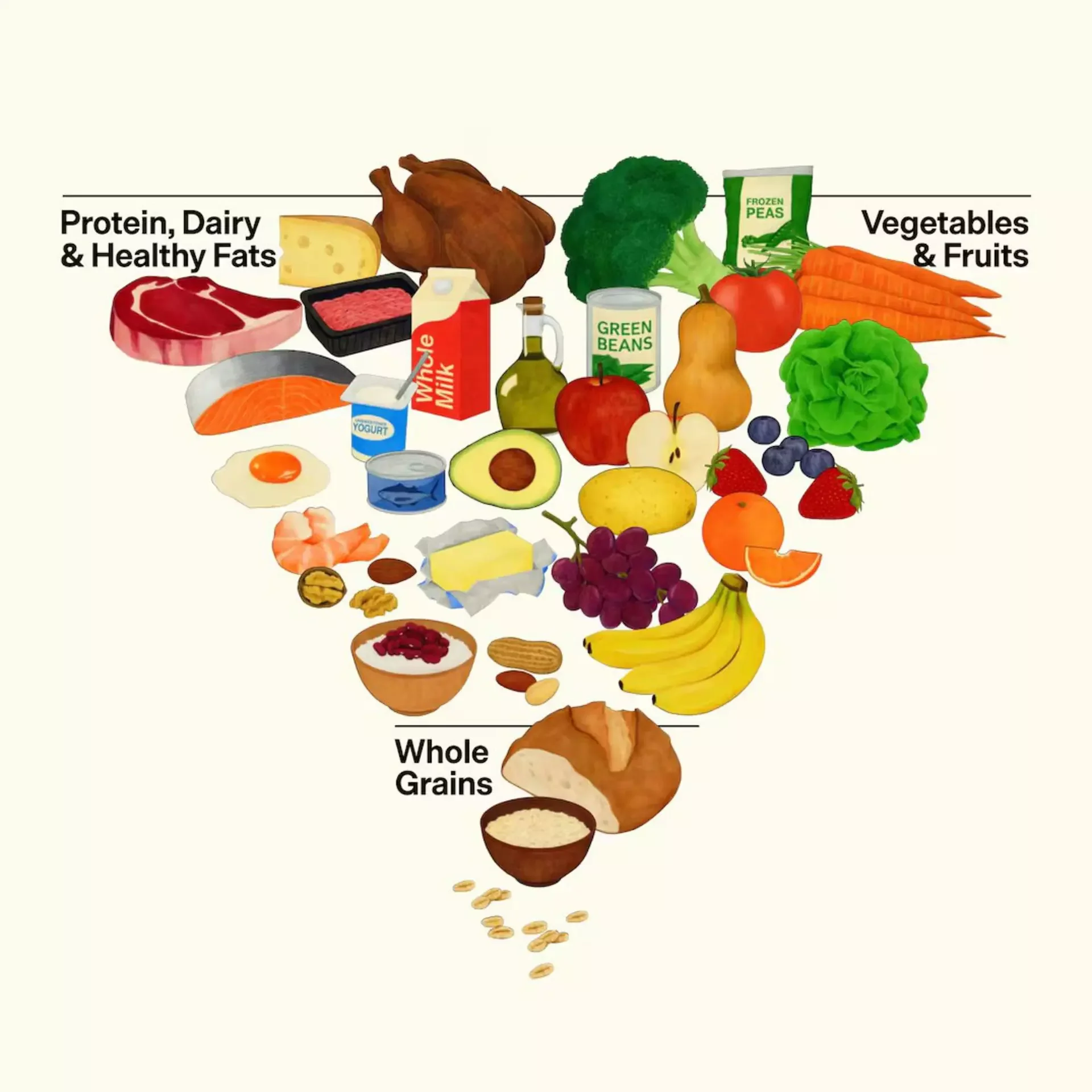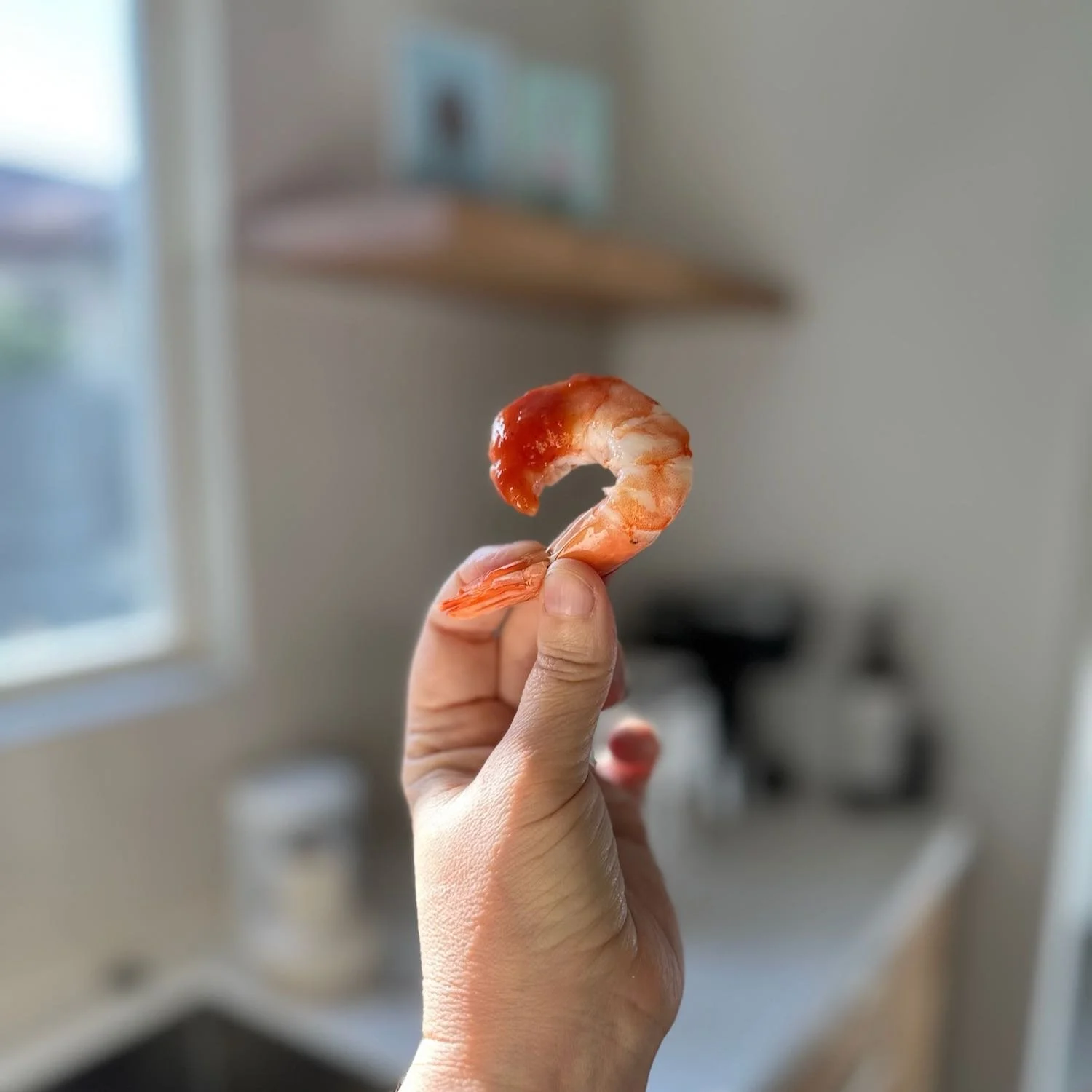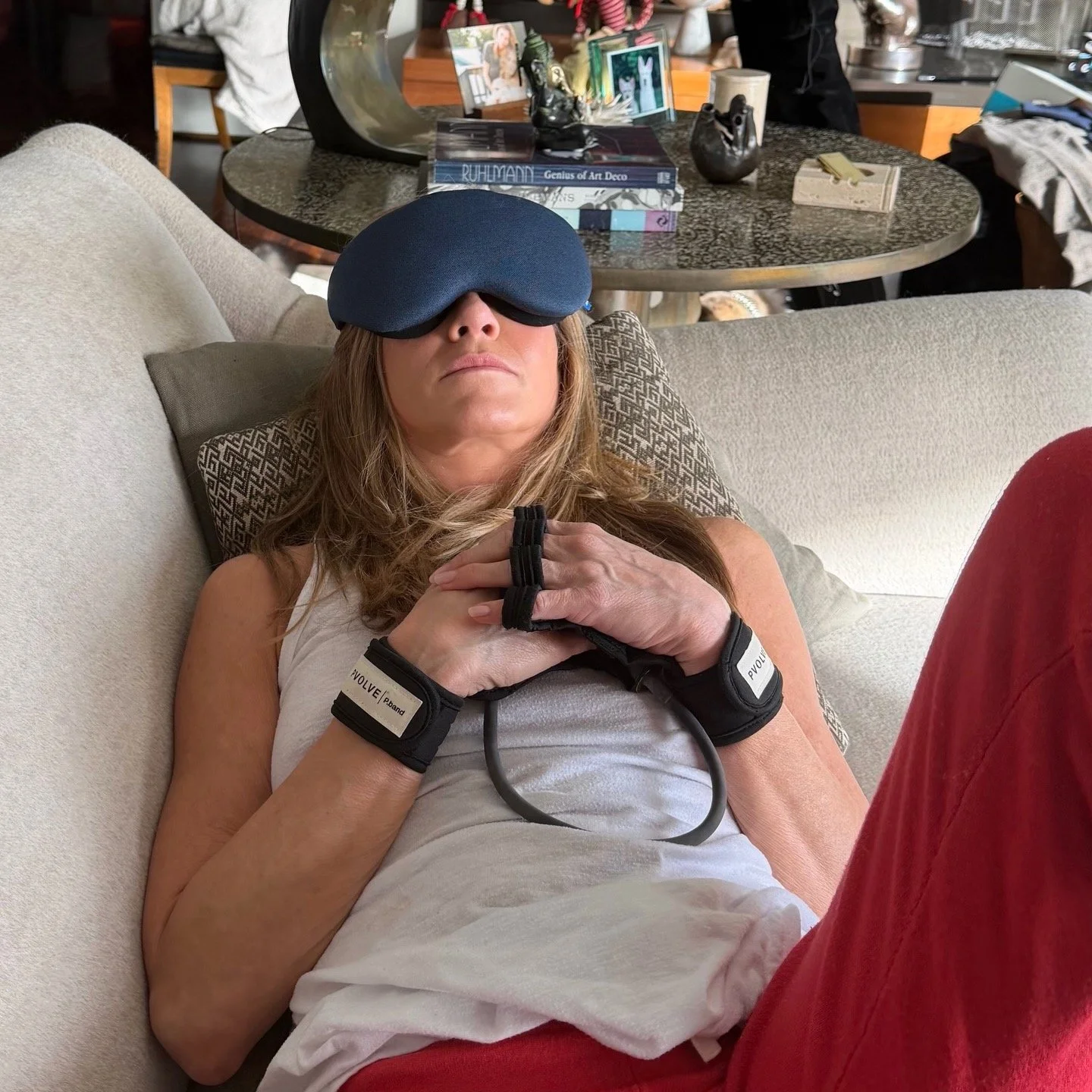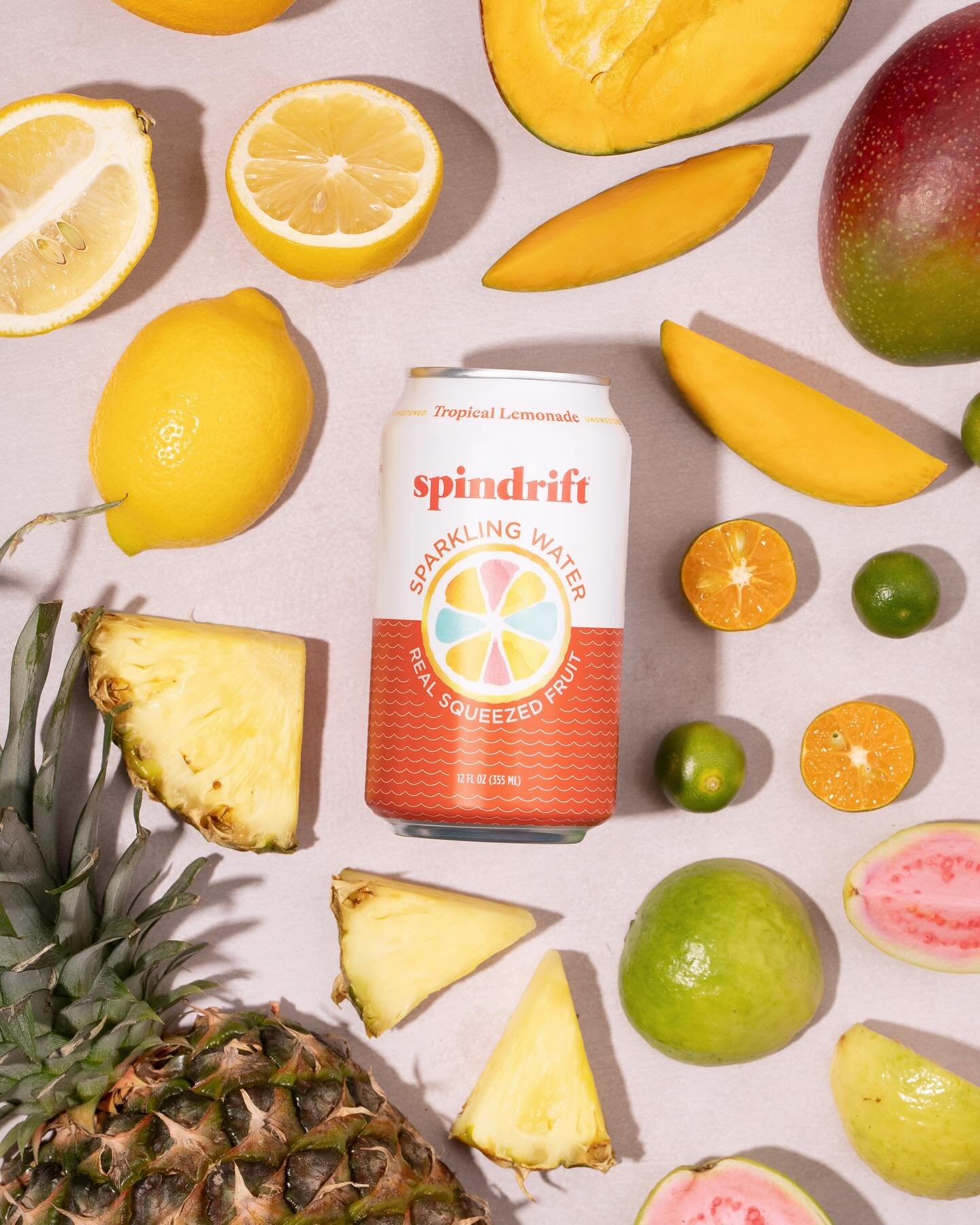So Are Zero Calorie Sodas Good For Weight Loss Or Not?
We’re asking the hard-hitting questions here.
by The Candidly Team
Weight loss involves many things. And many of of those things get us yelled at when we bring them up.
But one of the things it seems like we could all agree it should involve is logic - more specifically, math. If we burn more calories than we consume, we should therefore lose weight, right?
So shouldn’t zero calorie soda be a shoo-in for weight loss? Especially since soft drink intake is associated with weight gain, regardless of physical activity levels.
On the one hand, yes, eating zero or 10 or whatever minuscule number of calories are in your soda substitute instead of 200+ in your sugary one can help toward an overall calorie deficit. And if you keep that deficit with everything else you eat in a day, the math is very much on your side.
But there are other things to consider that could indeed affect whether drinking soda alts will lead to overall weight loss.
Image: Touchstone Pictures
It’s true that a very recent study found the C02 in carbonated water could potentially help with weight loss by assisting with the absorption process of glucose. However, this is likely a very small effect. But even without the C02 effect, water alone has been shown to suppress appetite, boost metabolism, burn fat, and remove waste, whereas sugary soda is just about the worst thing for losing weight.
And yet, the questions surrounding soda’s low-to-no-calorie substitutes are a little more complex. Back in 2020 Harvard Health reported that “research suggests that none of these choices may actually help with weight loss. Worse, they might even lead to weight gain!”
But don’t freak. It’s really just a matter of knowing what to look out for and avoid. So, let’s get into it.
A word about soda:
Before we say anything else, just sticking to soda is not the answer. Soda is, shall we say … the devil, as far as beverages go.
It’s linked with obesity, heart disease, high blood sugar, diabetes, high blood pressure, and high cholesterol.
And it is of course, very sugary and full of empty calories and chemicals. So just plain nixing soda from your day could certainly help with any fitness goals.
1. The great mystery around artificial sweeteners and diet drinks.
We can all agree sugar is not good. High fructose corn syrup? Extremely not good. Nevertheless, artificial sweeteners are still in somewhat murky territory, many saying the age old phrase “more research is needed.”
According to Harvard Health, “Numerous small studies have hinted at potential health problems, including a higher risk of cancer, kidney disease, and heart disease.” In 2023, a quite large study found “a potential link between artificial sweeteners and an increased risk of strokes, heart attacks, and related cardiovascular problems.”
The sweeteners that appeared to be the most problematic in terms of heart health were
Aspartame
Acesulfame potassium
Sucralose (Splenda)
You may also have heard concerns about aspartame being carcinogenic, however, there’s been some debate about the degree of concern of its risk to humans when taken in small quantities, a subject you can read more about HERE.
Of course, there are some other sweeteners on the scene for which we’re still waiting on more information, though we did take a closer look at allulose HERE. But in general, the Mayo Clinic states “it is safest to take in small amounts of sugar substitutes. And it's best to use sugar substitutes for a short time, or just every once in a while.”
2. The possible increase in hunger and sugar cravings.
Drinking faux sweeteners might make us crave more sweets in general “In rodent studies, at least one artificial sweetener (aspartame) has been found to damage a part of the brain that tells the animal when to stop eating,” reported Harvard Health. Other studies have shown an increase in a hormone that controls hunger known as ghrelin in the stomachs of both humans and mice after drinking carbonated versus flat beverages.
So when we picture just swapping one low-to-no calorie soda for a 200+ calorie one, it might sound wise, but if we think about how it impacts our entire day of eating, including our cravings, it could be a different story.
Now, this isn’t to say with any kind of certainty whether that means that drinking these drinks will make you gain weight. Some studies say these soda subs help with weight loss, others say the opposite. One novel idea is to test it out for ourselves, though it’s best to choose a soda with no artificial sweeteners or added sugars. Do you notice craving more sweets and high-cal foods when you drink said soda? Do you notice having more hunger on days you choose sparkling over still? If so, it may not be the best choice for you.
3. Some options are MUCH, MUCH better than others.
Now is the time to point out that an artificially sweetened and flavored diet soda is different from many a flavored sparkling water. “The best sparkling waters are those free of added sugars, artificial sweeteners, or other additives,” said dietitian Alanna Waldron, MS, RDN in an interview with Women’s Health. She also cited one of her top choices as Spindrift, which uses real fruit and has no “natural flavors,” which actually can contain not-so-great chemicals.
4. Finally, let’s not take our eye off the ball and forget some of the benefits.
When you choose a more natural sparkling water option over a real soda, a diet soda, a sugary juice, or an alcoholic beverage, the trade off is likely to be a plus. For some, the carbonation can make you feel fuller from its fizziness and hydration. For others, you might feel bloated and want to stick to flat. Either way, you’re saving yourself up to hundreds of calories.
And if you’re going to reach for a low-to-no-calorie soda alternative, here are a few options:
Waterloo*
Uses Non-GMO Project Verified natural flavors and no sugar or sweeteners of any kind.
La Croix*
No sugars, sweeteners, or artificial ingredients.
This article is for informational purposes only. It is not intended to be used in place of professional advice, medical treatment, or professional care in any way. This article is not intended to be and should not be a substitute for professional care, advice or treatment. Please consult with your physician or healthcare provider before changing any health regimen. This article is not intended to diagnose, treat, or prevent disease of any kind. Read our Terms & Conditions and Privacy Policy.


